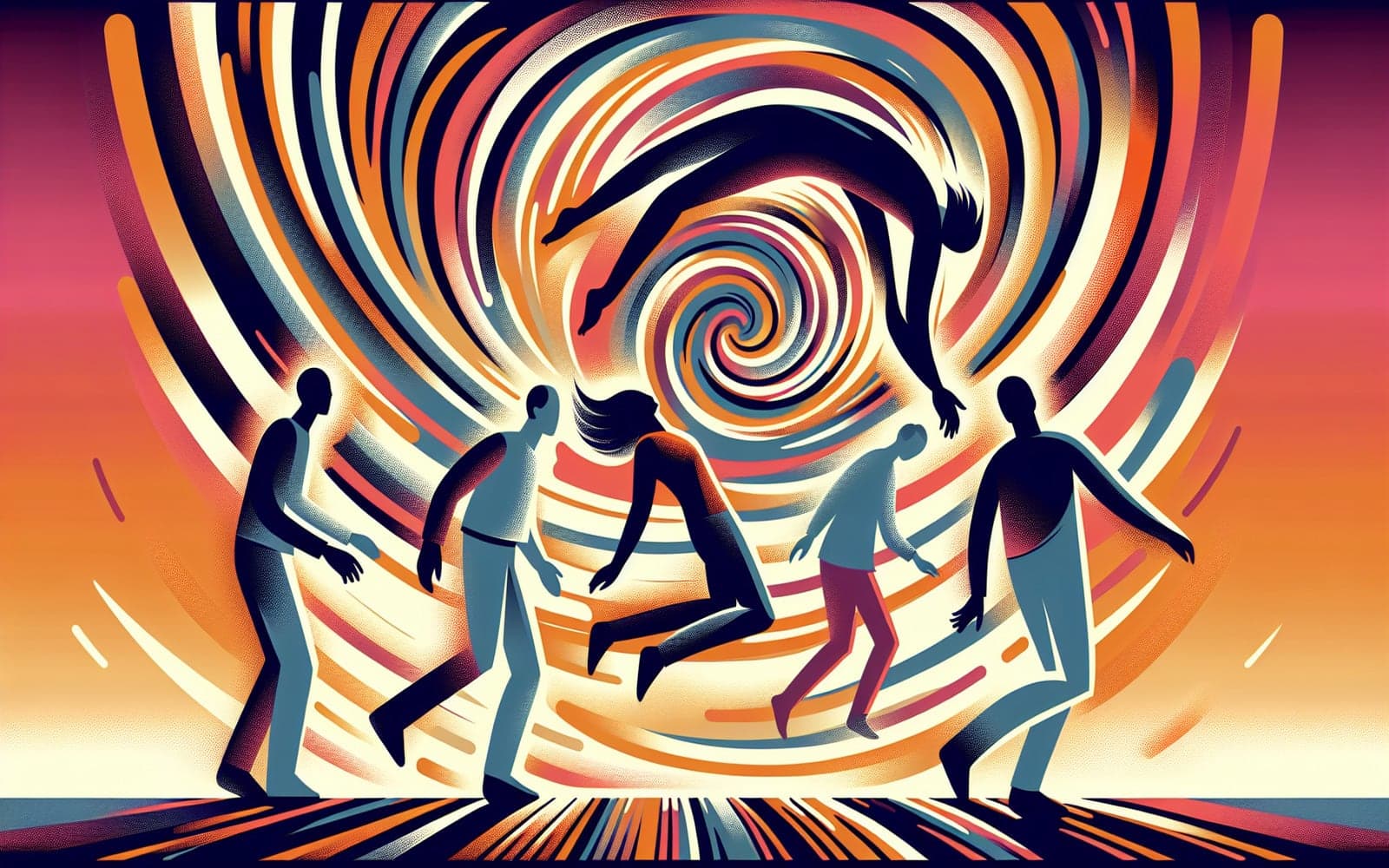Contents
-
What is Vertigo?
-
Distinguishing Vertigo
-
Associated Symptoms
Vertigo: The Dizzying Sensation Explained
Vertigo: The Dizzying Sensation Explained
What's This About?
Vertigo is a dizzying sensation that can feel like the world is spinning. Discover what causes it and how it can be identified.
Contents
-
What is Vertigo?
-
Distinguishing Vertigo
-
Associated Symptoms
What is Vertigo?
Vertigo is a predominant symptom of an imbalance in the vestibular system. It often feels like motion, either self-motion or motion of the environment. The spinning sensation is common, but descriptions can vary.
Distinguishing Vertigo
Vertigo differs from other dizziness types by its spinning quality, though not always reliable. The time course, provoking, and aggravating factors are more useful in distinguishing its cause.
Associated Symptoms
Vertigo often comes with nystagmus and postural instability. Hearing loss and brainstem signs can indicate whether it's peripheral or central vertigo.
FAQs
What is vertigo?
Vertigo is a sensation of spinning or motion.
What causes vertigo?
It arises from vestibular system imbalances.
Is vertigo always spinning?
No, it can be a general motion sensation.
Does vertigo affect balance?
Yes, it often causes postural instability.
Wrapping Up
Understanding vertigo's symptoms and causes can lead to better diagnosis and treatment.
Additional References
-
Kerber KA, Baloh RW. The evaluation of a patient with dizziness. Neurol Clin Pract 2011; 1:24.
-
Bhattacharyya N, Baugh RF, Orvidas L, et al. Clinical practice guideline: benign paroxysmal positional vertigo. Otolaryngol Head Neck Surg 2008; 139:S47.
This article has been reviewed for accuracy by one of the licensed medical doctors working for Doctronic.












